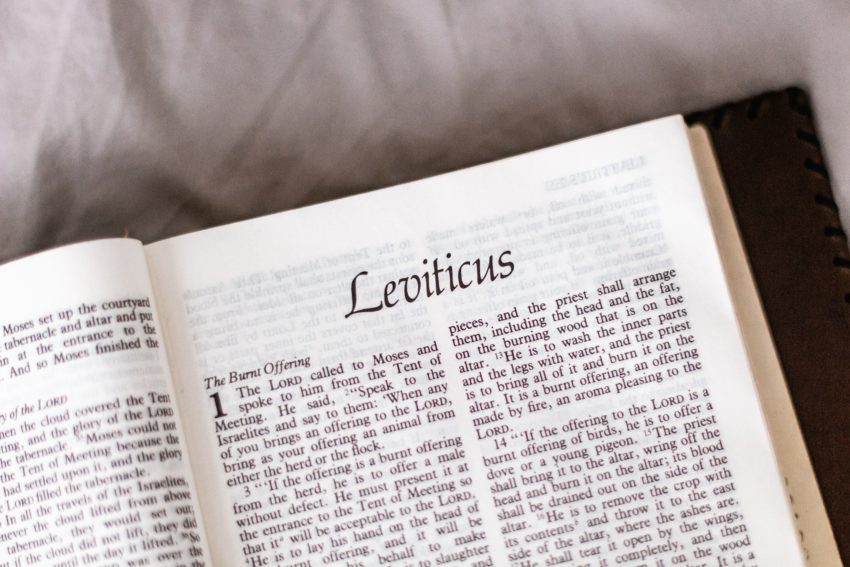By this time of the year, many well-meaning New Year’s resolutions to read through the Bible in a year have derailed. Most make it through the familiar stories in Genesis. The miracles and sheer power of God on display makes reading through Exodus a breeze. However, many would-be travelers have fallen off the reading wagon traversing through the bumpy details of Leviticus.
It’s not a matter of questioning the inspiration of Leviticus. The words in Leviticus are just as inspired as the red letters in Matthew. But, we all can agree that “Let your light so shine before men, so that they may see your good works and give glory to your Father who is in heaven (Matt. 5:16),” seems more applicable than, “And he shall sprinkle some of the blood on it with his finger seven times, and cleanse it and consecrate it from the uncleannesses of the people of Israel” (Lev. 16:19).
Reading such specific details chapter after chapter can be difficult since we do not have to sprinkle the blood, do all the washings, and eat the right animals. Because we don’t need to accomplish many of these tasks, reading about them can feel tedious.
Perhaps that’s the point.
Leviticus shows us the preparations and sacrifices the people of God needed to accomplish to atone for their sin and worship God rightly. It seems overwhelming to read task after task, washing after washing, and sacrifice after sacrifice. But, that’s just a picture of what it takes for sinners to be worthy to approach a Holy God. Even then, it wasn’t a sufficient atonement to cleanse the people of their uncleanness: “For since the law has but a shadow of the good things to come instead of the true form of these realities, it can never, by the same sacrifices that are continually offered every year, make perfect those who draw near” (Heb. 10:1).
Jesus teaches in Matthew 5: “Do not think that I have come to abolish the Law or the Prophets; I have not come to abolish them but to fulfill them” (v. 17). All the requirements we read about in Leviticus can seem overwhelming, but thankfully Christ has completed them perfectly on our behalf. Because all these things have been fulfilled in Christ, we can draw near to God.
As you read through all the requirements in Leviticus, thank God that he has sent his Son to accomplish all these things on our behalf. Thank God that you can approach him without slaughtering a goat or washing a certain way. We can approach him whenever we need his grace and mercy, and we don’t have to wait for a certain day or go to a certain place. We need no other mediator than Christ himself and he is always with his people.
“Let us then with confidence draw near to the throne of grace, that we may receive mercy and find grace to help in time of need” (Hebrews 4:16).
With the access to God you have because of Christ, are you drawing near to God this week?
